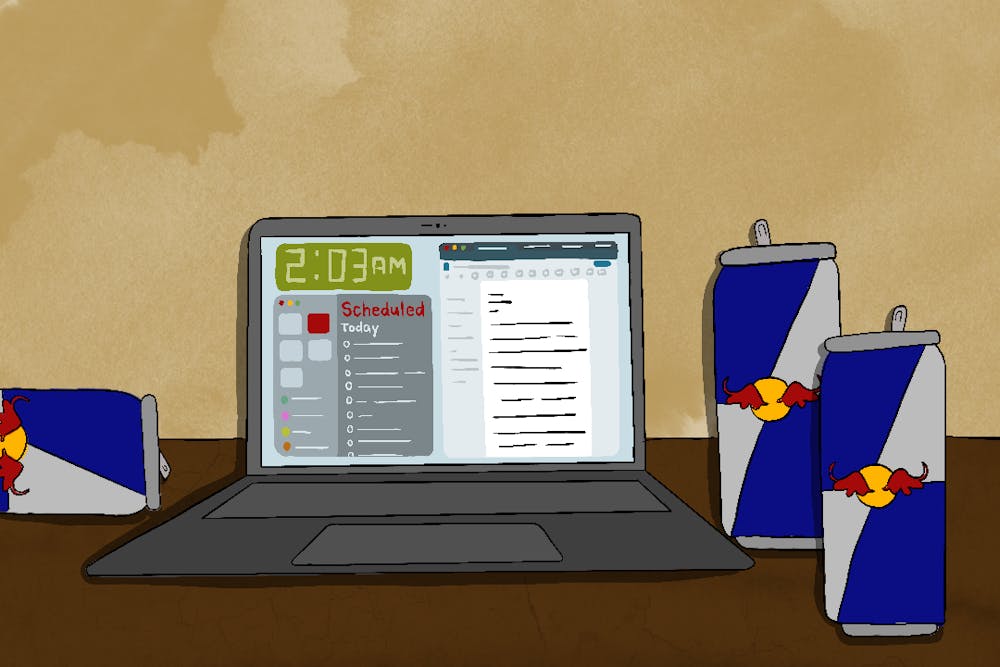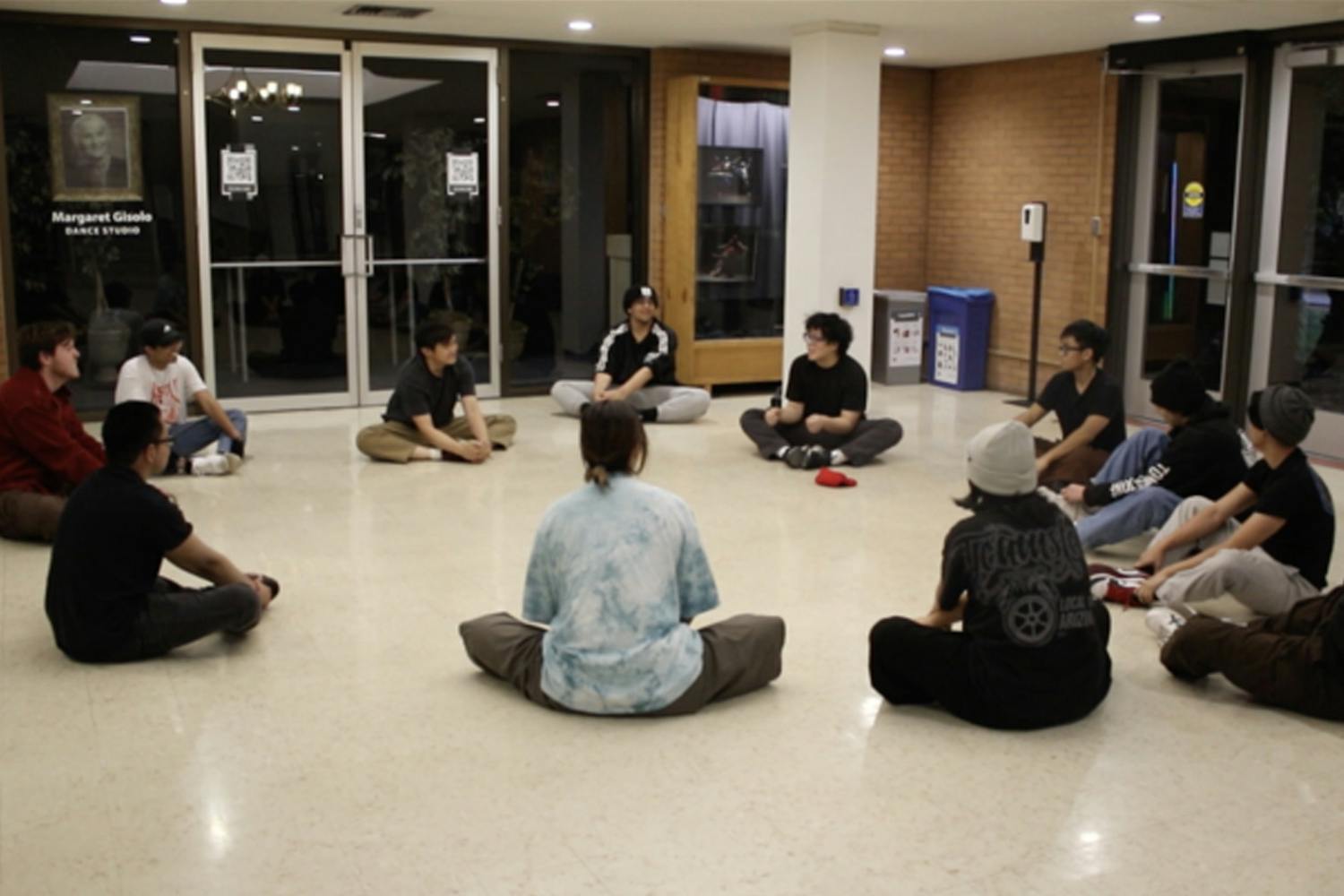About midway through every semester, students flock to their MyASU pages to complete the seemingly impossible task of selecting courses to stay on track with their program while making sure the classes are not too early (an 8 a.m.), not too late (anything after 5 p.m.) and definitely not on Fridays.
Students who wish to take more than 18 credits in a single semester have the added task of requesting a credit overload petition – a sometimes lengthy process as the request must be signed off by an academic adviser and approved by the standards committee of the student’s college or dean.
Though many students choose to request a credit override purely to graduate earlier than four years, some students have a major and minor combination or a double major that necessitates the higher-than-average workload.
Jean Sullivan, a junior, is taking 19 credits. She said the extra credit allotment is essential for her major in music therapy and minor in recreational therapy as some of her required classes are only offered during the spring semester.
"To stay on track, I needed it all at once. I’m not even complaining because 19 (credits) is the bottom of the average of what other students who are music majors are taking," Sullivan said. "It’s pretty common. I would be more comfortable doing less work at this time, but it feels like this is what I have to do."
There are also some students who opt for a credit override because they are accepted into a "3 + 1" or "4 + 1" bachelor's and master's degree program at their respective college.
Alan Dupre, a triple-major senior studying mechanical engineering, physics and global health, said because he is planning on completing a 4 + 1 program with the Ira A. Fulton Schools of Engineering, he has needed to take more than 18 credits in the past so he could begin to take graduate-level classes during his senior year.
"I worry about (the stress) plenty, but the thing is that all the classes I have taken for the overrides are classes I found super fascinating," Dupre said. "So the thing I think has kept me through is the fact that it is all very fulfilling."
Still, others choose to go over 18 credits just because they feel able to take on more responsibilities.
Paige McKenna, a freshman studying journalism who intends to add a second major or minor in religious studies and aims to join, is also taking 19 credits this semester and said she is used to large amounts of work.
"I have my associate's degree already because I took a bunch of college classes in high school, and I would do course overrides all the time," McKenna said. "I think there was one semester where I took 20 credits ... I think my biggest one was 23 credits."
Although many students can and do successfully handle the heavy workload, others struggle with academic burnout from over-scheduling themselves – a situation with which academic advisers are familiar.
According to Kimberly Singleton, an academic adviser for the University and the Walter Cronkite School of Journalism and Mass Communication, most students Singleton sees are sophomores and juniors requesting to take more than the required credits a semester. They often fall into three categories: students trying to graduate in fewer than eight semesters to make time for post-graduate plans, students trying to graduate earlier for the financial benefit and students with concurrent degrees or multiple majors and minors.
Credit overrides are not common, not only because they are a lot of work, but because they must be signed off by an academic adviser and approved by the standards committee of the student’s college or dean.
"To take 19 credits, you just need to have a 2.0 GPA or higher; to take 20 to 21 credits, you need a 3.0 or higher," Singleton said. "And then anything over that needs to get dean approval, and that’s just for fall and spring. For summer, we hardly ever approve overloads because classes are just a quicker pace."
Singleton said she "definitely worries" about students taking more than 18 credits, which causes her to be "one of the more conservative advisers."
"I always try to have the conversation of 'this is your education, this is your time, this is your money so we can do this, but let me know ASAP if something feels off or feels too much and remember your resources and counseling,'" she said.
Even without credit overrides, college students find themselves stressed taking normal credit hours. Overwhelmed feelings can compound and lead to feelings of burnout. Burnout is defined by the American Psychological Association as having three components: "overwhelming exhaustion, cynicism and detachment, and a sense of ineffectiveness and lack of accomplishment."
"Burn outs burn out," said Jamie Valderrama, an associate teaching professor for the School of Social Work. "When we see burnout, we see people become very lethargic. They’re not motivated any longer to pursue these things they were pursuing in advance already."
The possibility of burnouts with taking credit overrides is not the end-all-be-all, though it is a factor to heavy workloads.
Valderrama said students should understand the need for both balance and tenacity in one’s life.
"It’s understanding you have to have this balance and you have to take care of yourself first and primarily if you truly want to be creative and productive and give what you’re capable of giving," she said.
Correction: A previous version of this article said most students who request overrides are sophomores or juniors. This was clarified to say Singleton mostly sees sophomores and juniors. The previous version also incorrectly attributed the process of override approvals to Singleton, though advisors do sign off on the request. This story was updated on Sunday, Nov. 5, at 5:45 p.m. to reflect the changes.
Edited By Grey Gartin, Sadie Buggle and Grace Copperthite.
Reach the reporter at sjames51@asu.edu and follow @sennajames_ on X.
Like The State Press on Facebook and follow @statepress on X.
Senna is a sophomore studying journalism and mass communication with a minor in Spanish. This is her fourth semester with The State Press.




